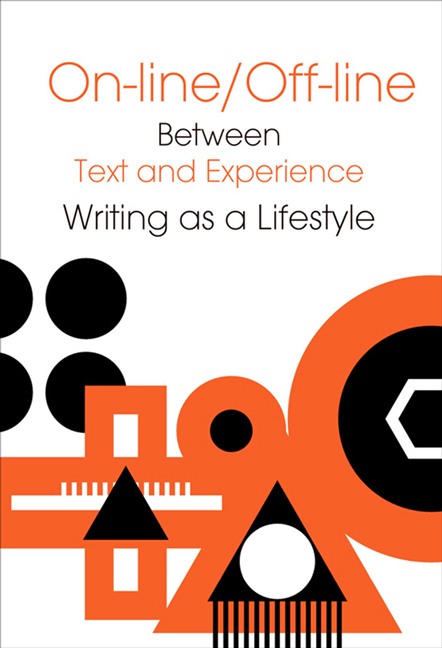Book contents
- Frontmatter
- Contents
- Editors’ Introduction
- ON-LINE/ OFF-LINE
- Literate Existence in the Digital Space. Contemporary Traces of Identity
- Text, Writing, School in Anthropological Perspective
- The Practice of Writing Fan Fiction: A Fan Fiction Writer's Tutorial
- I Write. You Write. They Write. The Literary Works of Fandom as a Factor in Integrating the Community
- Approaches Towards Shame in Contemporary Polish Literature
- People You May Know: Homosexual Men's Identity in the Time of Social Networking Services
- Contemporary Polish Essays: In Search of the Aura of Paintings and Photographs
- The Hybrid Work of Art as Experience
- Reincarnations of the Word: Media, Genres, Practices
- LITERATURE AND CONVERGENCE
I Write. You Write. They Write. The Literary Works of Fandom as a Factor in Integrating the Community
from ON-LINE/ OFF-LINE
Published online by Cambridge University Press: 12 January 2018
- Frontmatter
- Contents
- Editors’ Introduction
- ON-LINE/ OFF-LINE
- Literate Existence in the Digital Space. Contemporary Traces of Identity
- Text, Writing, School in Anthropological Perspective
- The Practice of Writing Fan Fiction: A Fan Fiction Writer's Tutorial
- I Write. You Write. They Write. The Literary Works of Fandom as a Factor in Integrating the Community
- Approaches Towards Shame in Contemporary Polish Literature
- People You May Know: Homosexual Men's Identity in the Time of Social Networking Services
- Contemporary Polish Essays: In Search of the Aura of Paintings and Photographs
- The Hybrid Work of Art as Experience
- Reincarnations of the Word: Media, Genres, Practices
- LITERATURE AND CONVERGENCE
Summary
Abstract
Fanfiction is a fiction based on situations and characters that have been created by someone else. It is written by fans who use original texts to create their own art and culture. Writing fanfiction is something that fans do together. They discuss original texts, share their views and opinions about plot and characters, and create common interpretation that can be used by other fandom members. They also participate in creating new texts by commenting on fanficks published by other fans. Writing is not only a way to express fans opinions about their favourite books and shows, but also an opportunity to spend time with people sharing their interests. Analysis of fan-created texts shows not only its importance to indi-vidual fans, but also a vital role writing fanfiction plays in building fan communities and creating bonds between their members.
Key words: fanfiction, fan communities, fandom, writing and reading
Fanfiction is defined as stories set in worlds or using characters created by other authors. The fans write to fill the gaps in original texts, contin-ue familiar stories, or create alternative universes. Most fanfiction is writ-ten within fandom, that is, communities of fans gathering around given works of fiction. Fandom is a subculture whose existence is based on other people's creations; the members take their creations, and use them to cre-ate their own artifacts, as well as build group traditions. The fans rewrite source texts to adapt them to their own needs; they actively participate in culture, and create their own art. Fandom creativity can take different shapes and forms. Apart from works of fiction, one can find examples of visual arts (“fanart”), music (“filk”), and audiovisual arts (“fanvid”). Re-gardless of form, all fandom's creations are based on the source text, which is usually refered to as “canon”. Canon is what binds fans as a group, giv-ing them creative space within which they can act. In a way, canon is the source of group identity, since most fans identify with the groups within which they create. Saying: “I'm a Star Trek fan” means declaring oneself as a member of a group that has its unique traditions, different, for exam-ple, of those cultivated by Harry Potter fans – although, of course, there are many elements that both groups share.
- Type
- Chapter
- Information
- On-line/Off-lineBetween Text and Experience: Writing as a Lifestyle, pp. 63 - 74Publisher: Jagiellonian University PressPrint publication year: 2016

